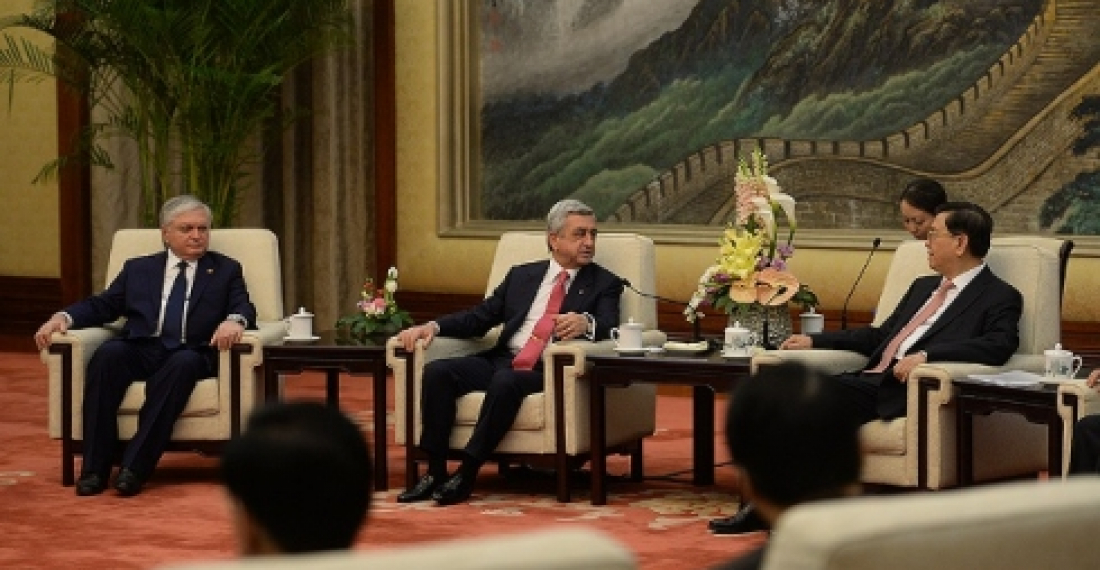The President of Armenia, Serzh Sargsyan, is currently on a state visit to China. At the start of the visit President Sargsyan visited Tiananmen Square and laid a wreath and paid tribute to the Monument to the People's Heroes.
Later the Armenian President held a meeting with Zhang Dejiang, Chairman of the Standing Committee of the National People's Congress.
The Chairman of the Standing Committee of the National People's Congress greeted the Armenian President and underscored that in the Republic of Armenia, China has a reliable and good partner with which the dynamically developing political dialogue is based on mutual respect and trust. He attached importance to President Serzh Sargsyan's state visit to China and the successful high-level negotiations with President Xi Jinping which, according to Zhang Dejiang, will give new impetus to bilateral relations, elevating them to a qualitatively new level.
President Serzh Sargsyan noted that Armenia regards its relations with China as one of the most important foreign policy priorities and places great value on the deepening of friendly relations with China - a country representing one of the world's most ancient civilizations and an influential member of the international community, the website of the Armenian Presidential Administration reported.
source: commonspace.eu
photo: President Sargsyan, accompanied by Foreign Minister Edward Nalbandian, met with Zhang Dejiang, Chairman of the Standing Committee of the National People's Congress in Beijiung on Thursday, at the start of his official visit to China. (picture courtesy of the Press Service of the president of Armenia)







